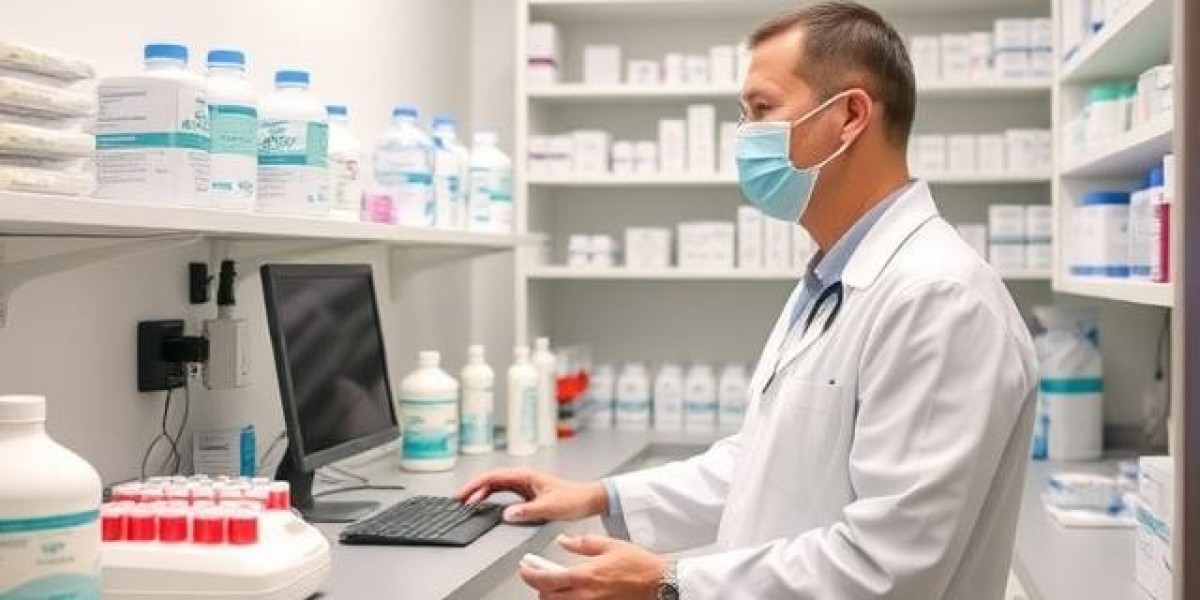A compounding pharmacy is a specialized type of pharmacy that focuses on creating customized medications tailored to the specific needs of individual patients. Unlike traditional pharmacies, which typically dispense pre-manufactured medications, compounding pharmacies have the ability to prepare medications from scratch based on a healthcare provider’s prescription. This can involve altering the strength, dosage, form (such as liquid, gel, or cream), or ingredients of a medication to suit the patient’s unique medical requirements.
Compounding pharmacy services are particularly beneficial for patients who may need medications in dosages or forms that are not available from commercial manufacturers. These pharmacies play an essential role in healthcare by helping individuals with specific needs, such as those who are allergic to certain ingredients, children who need liquid versions of medications, or patients requiring hormone therapy.
How Does a Compounding Pharmacy Work?
At a compounding pharmacy, a pharmacist works closely with physicians to create personalized prescriptions. When a doctor prescribes a medication, the compounding pharmacist may alter the formulation or compound a completely new drug to meet the patient’s needs. This might involve adjusting the strength, combining multiple medications into a single dosage form, or changing a medication’s form—such as turning a pill into a liquid or creating a topical cream.
The process typically begins when a healthcare provider evaluates the patient’s condition and determines that a standard, commercially available medication isn’t suitable. They then send a prescription to the compounding pharmacy, which carefully prepares the medication according to the specific instructions. The compounded medication is then dispensed directly to the patient, ensuring it aligns with their treatment plan.
Common Uses of Compounding Pharmacies
Compounding pharmacies serve a wide variety of patient needs. Here are some of the most common applications:
1. Personalized Dosage Adjustments
For patients who require a specific dosage strength that isn’t commercially available, a compounding pharmacy can prepare the correct amount to meet the patient’s exact needs. This is particularly important for children, elderly patients, or those who have specific health conditions requiring adjustments in dosage.
2. Allergy-Free Medications
Many commercial medications contain ingredients like gluten, dairy, or certain dyes that some patients may be allergic to. Compounding pharmacies can create allergy-free versions of these medications by removing or replacing the ingredients that cause adverse reactions.
3. Hormone Replacement Therapy (HRT)
Hormone imbalances are common, especially among women going through menopause or men with low testosterone levels. Compounding pharmacies can create custom hormone replacement therapies tailored to the patient’s individual hormonal needs. This can include bioidentical hormone therapies that are designed to match the body’s natural hormone levels more closely.
4. Veterinary Compounding
Just like people, animals sometimes need medication in forms that are not commercially available. Compounding pharmacies can create animal-friendly medications that are safe, effective, and palatable. This can include flavored medicines or liquid forms that are easier to administer to pets.
5. Pain Management
For patients suffering from chronic pain, compounding pharmacies can create personalized pain relief formulas, such as creams or gels, that can be applied directly to the site of newport beach compounding pharmacy. This targeted approach minimizes systemic side effects, providing a more effective treatment for the patient.
Benefits of Compounding Pharmacies
1. Customization
The most significant advantage of a compounding pharmacy is the ability to create medications that are specifically tailored to a patient’s needs. Whether it’s adjusting the dosage, eliminating allergens, or providing a different form of medication, compounding pharmacies give healthcare providers more flexibility in prescribing the right treatment for their patients.
2. Improved Adherence
Patients are more likely to stick to their treatment plans when medications are made in forms that are easier for them to take. For instance, children may prefer liquid medications over pills, and a topical cream may be more effective than a pill for patients with skin conditions. Custom medications increase patient adherence and overall satisfaction.
3. Access to Discontinued Medications
Compounded medications also offer a solution for patients who rely on medications that have been discontinued or are no longer manufactured. In such cases, a compounding pharmacy can recreate the drug in the required form, ensuring continuity of care for the patient.
4. Alternative Delivery Methods
Compounding pharmacies offer alternative delivery methods for medications, such as transdermal patches, sublingual tablets, and oral suspensions. These alternatives can be more convenient, easier to use, and sometimes more effective than traditional pills or injections.
Regulatory Standards for Compounding Pharmacies
Compounding pharmacies must adhere to strict regulations and standards to ensure patient safety. The United States Pharmacopeia (USP) sets the guidelines for compounding medications, and pharmacies must comply with these standards. Additionally, compounding pharmacies are regulated by state boards of pharmacy and must undergo regular inspections to maintain compliance.
Pharmacists in compounding pharmacies are specially trained to handle and prepare compounded medications. They must ensure that the ingredients used are of the highest quality, and that the medications are properly prepared and dispensed to the patient.
Conclusion
Compounding pharmacies provide a vital service by offering customized medications that meet the individual needs of patients. Whether it’s for personalized dosages, allergy-free medications, or alternative delivery methods, compounding pharmacies ensure that patients receive the most effective and convenient treatments possible. By working closely with healthcare providers, compounding pharmacies help bridge the gap between standard medications and the unique requirements of patients, ultimately improving treatment outcomes and patient satisfaction.








